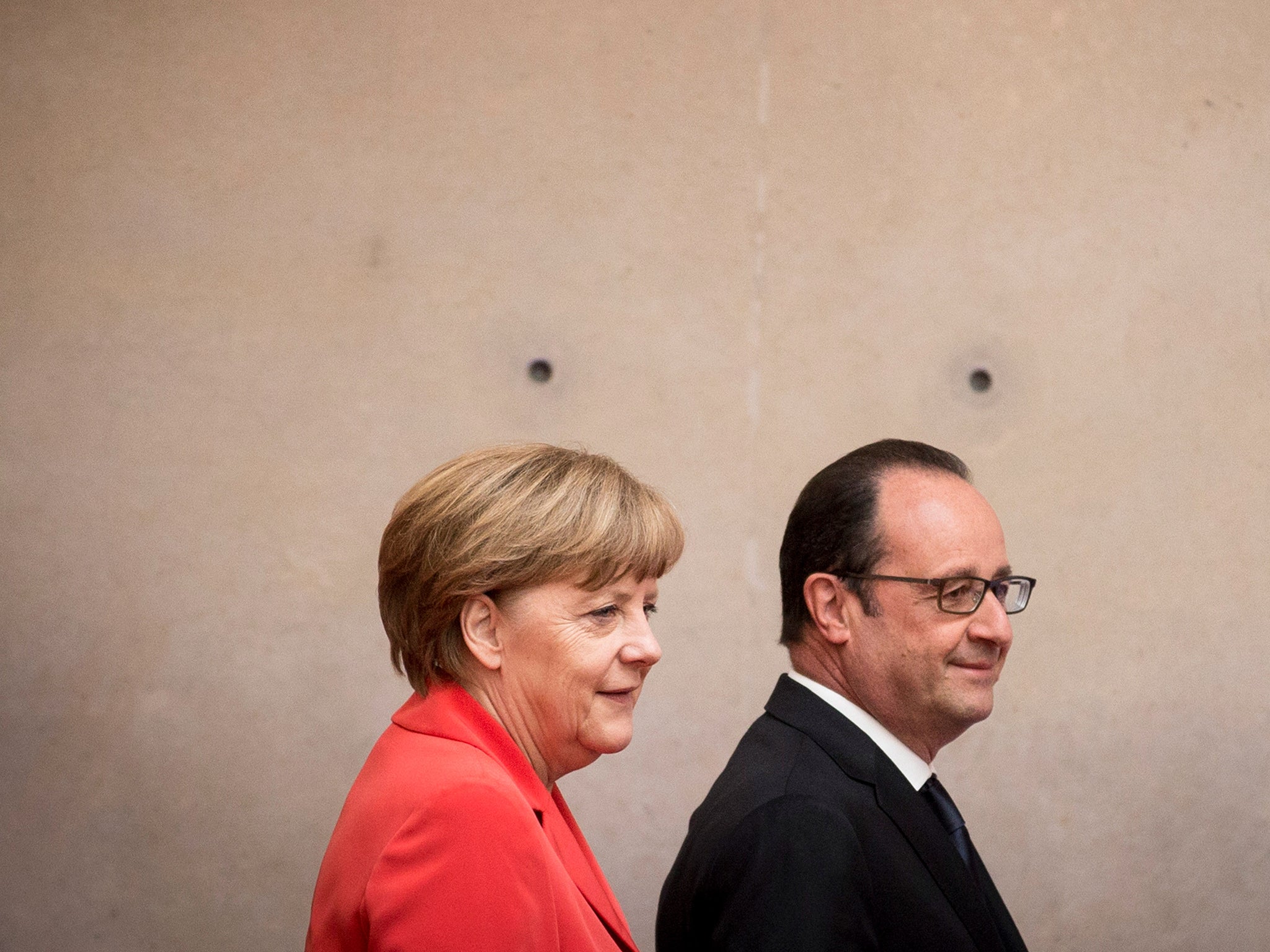If a Eurozone financial crisis is to be avoided, Italy and France need structural reforms - and quickly
In both Italy and France, the priority is to defend the already protected at the expense of the rising number of excluded

It is doubtful if the eurozone would survive a major debt crisis in any core country such as Italy or France. If a financial crisis is to be avoided, Italy and France desperately need structural reforms, to increase growth and competitiveness.
Italian Prime Minister Matteo Renzi belatedly introduced labour market reforms. However, his primary focus remains political and constitutional reform, which would increase the ability of future governments to act. The measures include reduced employment security and new unemployment benefits which will be phased out over two years. But generous benefits have not been eliminated, with entitlements and job protections increasing gradually with seniority. The change will affects new workers. It does not affect public sector employees.
In France, the Hollande government introduced cuts in employers’ payroll charges on the low paid workers. It has made modest reforms to pensions, increasing the period of service needed to qualify for a full pension. However, extra pension entitlements for demanding work were granted.
The reforms, while welcome, create a two tier labour market. Established workers enjoy traditional employment benefits. New contract workers receive lower wages and have minimal job security, decreasing the effect on economic activity. This also creates an industrial sub-class of a new working poor with attendant social problems.
In both Italy and France, minimum wage levels, working hours, major entitlement programs and reform of the public sector remains largely taboo.
French liberalisation measures have been minor, focused on extended retail trading hours, deregulation of intercity coach travel, procedural changes to labour tribunals to speed up proceedings and reduced protection for some professions.
Privatisations face opposition. Deregulation of controlled industries, from pharmaceuticals to podiatry and telecommunication to taxis, is resisted by incumbents. The required changes are well known. A 1959 French report, commissioned by President Charles de Gaulle, recommended deregulation of many industries to remove obstacles to economic expansion which have been ignored by subsequent governments.
Change is also slow. The Italian government took three months to legislate the new rules allowing employers to keep temporary workers for up to three years before putting them on permanent contracts. In the process, the Prime Minister Mateo Renzi alienated trade unions and left of centre parties, including his own supporters. In France, labour laws originally introduced by the 1936 Popular Front government of Léon Blum, requires consensus between employers, employees, unions and the government in setting labour-market and social-security rules.
There is little appetite for confrontation on the scale of the UK miners’ strike. If the economy improves or deteriorates, reforms are frequently shelved as the time is not propitious.
A deep antipathy of capitalism and business impedes change. Ordinary Italians are understandably suspicious of deeply entrenched business oligarchies. Only around 30 per cent of the French population believe in the superiority of the free market system.
Mistrust of market solutions is shared by both major French parties. Gaullist Prime Minister Edouard Balladur once defined civilisation as the struggle against the market. In his 2012 election campaign, French President François Hollande declared his “main opponent is the world of finance”. He was recycling both President de Gaulle who stated that “my only enemy, and that of France, has never ceased to be money” and Socialist President François Mitterrand who denounced “the power of money”.
A lack of appetite for political risk also impedes change. Italy’s legendary political dysfunction led dictator Benito Mussolini to state that: "governing the Italians is not impossible, it is merely useless".
Mateo Renzi is the third Prime Minister who did not attain power by an election victory, ascending to his position by internal party manoeuvring. A fragmented parliament means that coalition governments are the norm, making decision making difficult. Prime Minister Renzi’s promised reform blitzkrieg mutated into “one reform a month” and then “one thousand days” and “step by step” as reality set in. Opponents accuse the Prime Minister of suffering from “proclaimatitis”, a surfeit of announcements and little follow-through.

France’s political leadership believe that the economic and social model does not require radical change. Elected on a reform model, the government of Nicolas Sarkozy failed to implement changes as economic conditions deteriorated. The Hollande government has sent mixed messages. After initial backtracking on reforms, it shifted to policies favouring businesses, reminiscent of President Mitterrand’s 1983 change of strategy. But reforms are small. There is a lack of urgency. Both sides are wary of the electorate’s appetite for change. Gaullist Prime Minister Alain Juppé failed in his 1995 attempts to alter France’s welfare and pensions. Labour unrest forced a humiliating back down and led to an election defeat.
In both Italy and France, the priority is to defend the already protected at the expense of the rising number of excluded. In Italy, 15 million people out of a population of 60 million now live in some form of deprivation, including over 8 million in a condition of serious economic hardship. In France, millions of long-term unemployed and young people especially those without qualifications face little prospect of employment.
These pressures manifest themselves in different ways. Politically, smaller parties like Italy’s Five Star Party and France’s Front National have gained at the expense of traditional holders of power. Even if they are unlikely to win government in their own right, parts of their agenda –anti-Euro, anti-immigration- are now firmly on the political agenda. Social conflict is also evident. In Italy, anti-immigrant sentiments are rife. In France, discontent at discrimination and lack of prospects is radicalising the sizeable Muslim minority.
Satyajit Das is a former banker and author. His latest book is 'A Banquet of Consequences'
Join our commenting forum
Join thought-provoking conversations, follow other Independent readers and see their replies
Comments